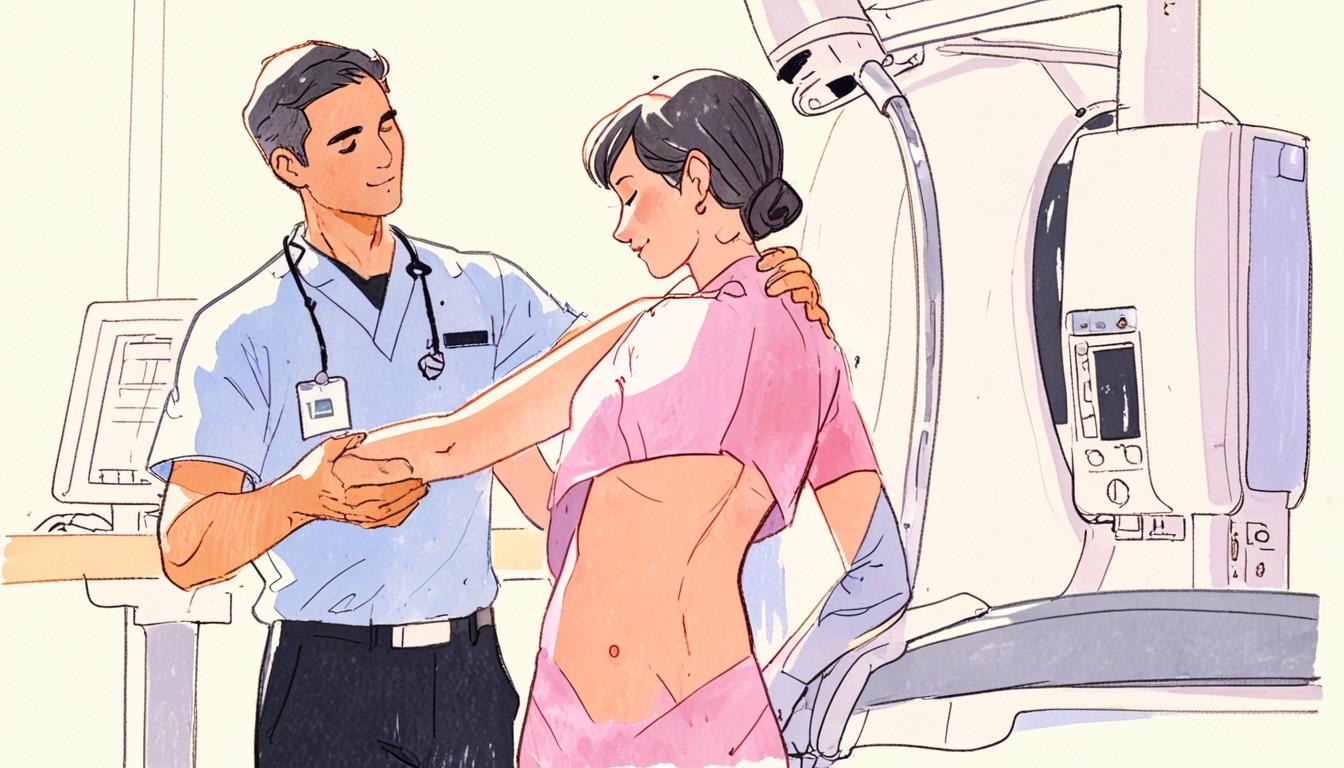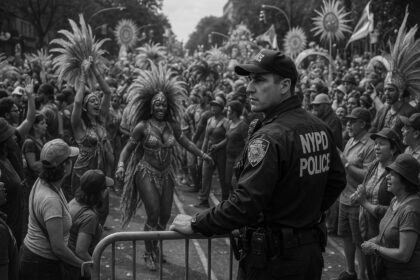The Society of Radiographers calls for qualified male health workers to conduct mammograms to address screening delays, with writer Alexandra Shulman sharing personal experiences that challenge patient gender preferences during cancer care.
The Society of Radiographers is advocating for a policy shift that would allow qualified male health workers to perform mammograms, a role currently designated exclusively for female professionals. The push for change comes amidst growing concerns over the backlog of critical screening procedures, reflecting a broader conversation about gender roles in healthcare and patients’ comfort during sensitive examinations.
Alexandra Shulman, writing for the Daily Mail, argues that the apprehension some patients may feel about having a male radiographer is unfounded, especially for those who have experienced serious health challenges. She highlights that during her own battles with cancer, her discomfort about modesty diminished significantly. “When you are seriously ill, you simply don’t care,” she noted, emphasizing that the priority in such situations should be to receive competent medical care, regardless of the provider’s gender.
Shulman recounted her personal experiences, including consultations and surgeries performed by male surgeons, which further supports her argument that the focus should be on the qualifications and expertise of healthcare providers rather than their gender. She asserts that for many patients, “the best you can do is hope that anybody, of any gender, knows what they are doing.”
In a related commentary, Shulman reflected on her recent visit to Louisiana, where she experienced frequent severe weather alerts. Known for its swampy terrain and susceptibility to storms, Louisiana relies on a robust alert system to keep residents informed. Shulman expressed mixed feelings about this aspect of Southern life, recounting the alarm of receiving emergency notifications in the middle of the night. “Being woken at 3am with a terrifying alert announcing ‘This is a dangerous and life-threatening situation, do not attempt to travel’ did severely test my enjoyment of American weather news,” she wrote.
Shulman’s observations extended to her personal affinity for Southern colloquialisms, expressing her fondness for the term “y’all,” which she found endearing, though incongruously out of place in her London accent. She also touched upon the emerging trend of artificial intelligence in the fashion industry, where AI-generated models are becoming more prevalent. While the legal ramifications of using AI to replicate the images of real models are still being debated, Shulman noted that some agencies are already selling image rights for lesser-known clients for AI utilisation.
Lastly, Shulman reminisced about her time during the Eighties, contrasting her experiences at the prestigious Tatler magazine with the avant-garde representation found in The Face magazine. She highlighted the differing approaches to style and cultural representation in both publications, noting that The Face thrived on a limited budget while larger platforms operated with significantly more financial freedom.
Through these diverse reflections, Shulman provides insight into personal experiences and broader societal issues, from gender roles in healthcare to the evolution of media and technology, encouraging readers to engage with these topics on their own terms.
Source: Noah Wire Services
- https://www.sor.org/news/ezine/male-mammographer-motion-sparks-fierce-debate-at-t – This article discusses the Society of Radiographers’ motion at the Trades Union Congress advocating for male radiographers to perform NHS breast screening examinations, highlighting the debate and support for this policy shift.
- https://www.sor.org/news/trade-union-ir/radiographers-call-for-breast-screening-to-be-carr – This piece details the Society of Radiographers’ call for the government to allow male radiographers to conduct NHS breast screening examinations, emphasizing the national shortage of mammographers and the need for policy change.
- https://www.theguardian.com/society/article/2024/aug/15/radiographer-shortage-in-england-delaying-breast-cancer-treatment-says-society – This article reports on the Society of Radiographers’ concerns about the shortage of mammographers in England, leading to delays in breast cancer diagnoses and treatments, underscoring the urgency of addressing staffing issues in breast screening services.
- https://breast-cancer-research.biomedcentral.com/articles/10.1186/bcr2021 – This study examines the impact of male radiographers on breast screening program performance, revealing that a significant portion of women felt embarrassed by male radiographers, which could affect screening uptake.
- https://pubmed.ncbi.nlm.nih.gov/32331927/ – This research assesses women’s reactions to the introduction of male mammographers in the NHS breast screening program, indicating that over half would attend screenings with male radiographers, but a notable percentage would refuse or prefer a female chaperone.
- https://www.radiographyonline.com/article/s1078-8174%2816%2930054-2/fulltext – This qualitative analysis explores barriers and incentives for radiography students specializing in mammography, highlighting concerns about patient preferences for female radiographers and the stigma associated with male practitioners in this field.
- https://www.dailymail.co.uk/femail/article-14676295/If-youre-sick-modesty-luxury-you-afford-writes-ALEXANDRA-SHULMAN.html?ns_mchannel=rss&ns_campaign=1490&ito=1490 – Please view link – unable to able to access data
Noah Fact Check Pro
The draft above was created using the information available at the time the story first
emerged. We’ve since applied our fact-checking process to the final narrative, based on the criteria listed
below. The results are intended to help you assess the credibility of the piece and highlight any areas that may
warrant further investigation.
Freshness check
Score:
8
Notes:
The narrative does not reference overtly outdated information but lacks specific recent developments or breaking news. It discusses contemporary issues such as the role of male radiographers and AI in the fashion industry.
Quotes check
Score:
9
Notes:
Direct quotes appear to be original to the author or not readily available online, which suggests they may be first-use quotes. The author’s personal experiences and reflections support her arguments.
Source reliability
Score:
7
Notes:
The narrative originates from the Daily Mail, a well-known publication, though its reliability can vary depending on the topic and author.
Plausability check
Score:
8
Notes:
The discussion on male radiographers and AI trends seems plausible, but specific claims about industry practices or medical policies require further verification.
Overall assessment
Verdict (FAIL, OPEN, PASS): OPEN
Confidence (LOW, MEDIUM, HIGH): MEDIUM
Summary:
The narrative addresses contemporary issues with a mix of personal experience and broader societal commentary. While it appears fresh and includes original quotes, the reliability and plausibility checks yield medium confidence due to the need for additional verification of specific claims.













